Practical Preparedness- Simple steps you can take today to prepare your family for whatever may come
As an Amazon Associate I earn from qualifying purchases.
I wrote this post two years ago but hesitated to run it because I knew a lot of people would rather not think about things like this. However, with so many precarious situations in our world right now and this being National Preparedness Month, I’ve decided to take this opportunity to bring some thoughts and ideas to you in hopes that they may prove to be helpful to your family should the need arise.
In 2011, when the tornadoes swept through my state, many people we know lost their homes and even loved ones. We only lost power.
We were without power for a full week but forunately we were prepared.
Fortunately, we didn’t need to get anywhere because gas stations, which ran on power, were closed. A few were open but the lines were so long and gas was being rationed. As a result, folks were cautioned they’d use more gas than they could get while waiting in line.
Fortunately, we didn’t need food because grocery stores were closed as well, save for one that had registers hooked up to generators. Being the only one in town, by day two the shelves were mostly bare.
Because of those countless natural disasters that have taken place over the past several years along with the tumultuous state of our world and economy, I wanted to write this post. This is for those who haven’t given much thought to preparing for a disaster or emergency in hopes of letting you know a few things to consider and some simple (low cost) ways that you can prepare to take care of yourself and your family should the need ever arise. This post is also for those who have wisely considered possible scenarios and continue to do so. Perhaps I will mention something that you have overlooked or vice versa. Iron sharpens iron and one of the best methods of being prepared I have found is to sit down and speak with like-minded individuals who have their eyes on the current state of affairs.
This post is not meant to be used as a guide to preparing, but simple a starting point to help get you thinking about how to best prepare for your family. I am only sharing introductory steps here but will be happy to answer specific questions as fully and frankly as I can in the comments.
If this is something that has been on your heart to do but you have not taken any steps yet, I suggest reading this post and then doing further research. There are countless books on disaster preparedness and, in my experience, not one single book will work entirely when it comes to your family’s individual needs.
You are the only expert in that field.
Think about this. With no power, no gas stations could operate. There were a few scattered ones but folks were urged not to go because the lines would be so long, you’d use up more gas driving there and waiting in line than you would be able to get (it was rationed out).
Most grocery stores could not operate and all of their cold goods spoiled rapidly. One grocery store near us was able to operate because they were equipped to run their registers off of generators. About day two we decided to go just to check it out and they were out of a great many items already, with lines to the back of the store. No bread. Cold goods were no longer available. No meat or milk or butter or yogurt or any of the things my kids like to eat. We left with the relief of knowing we weren’t dependent on a store to provide for our needs.
Fortunately, we still had water – that is a huge thing. I was able to cook and the first three days we feasted like kings as I cooked up as much as I could on the grill from our deep freezer since it would all be going bad. Those first three days were the easy days and since I was prepared, the remaining days weren’t difficult either but had I not been prepared, it could have gotten iffy.
That was only a week, imagine if it had been more.
This is only one scenario, imagine if it had been something else.
We have a tendency to think we’re immune, but turn on the news and you’ll see that situations like this occur every day. Hurricane Katrina, Hurricane Sandy, massive tornadoes in states around the country, and back when I wrote this post an entire town in Georgia had someone break into their water treatment plant and the EPA shut down all water to the entire town for four days. Recently, towns in Ohio and Michigan along with many others have gone through similar water crisis due to contamination of different sorts. Shelves have cleared out in these towns within hours.
Now lets get beyond natural disasters to more predictable threats: war, pandemics, the economy. Just last week the CDC issued a memo to all hospitals that stated “The time to prepare for an Ebola pandemic is now”, exact quote. The name du jour of Al-Quaeda has said openly and repeatedly that their ultimate goal is eliminate as many of us as possible. Already this year, many countries have dropped the US Dollar as their reserve currency, leading to an even greater devaluing of the money in your pocket right now. Combine that with the rising grocery prices (over 50% price increases in some cases) and other living expenses and don’t forget to stir in lack of jobs with an already dismal economy. I realize news reports contradict this and state that the economy is strong, recovering, etc. But step outside of the tv and look around you. How many people do you know who can’t find a job right now? I know many people who have given up. Still others, who went from making family supporting incomes to being pounded to the level of being grateful for minimum wage. How many families do you know that are not struggling to stretch their grocery dollar right now? Reality and news reports don’t always match up. The power of discernment is a tool not to be underestimated.
So is it really crazy to have some food put back in order to be able to take care of your family and shelter in place should an emergency occur?
Is it really crazy not to live in a way that requires you to go to the grocery store every few days or else not have food?
In times of disaster, the first things to disappear from the shelves will be what you need the most to survive.
Is it crazy to have some medicine, water, food, and other needed items that you know you will use anyway stocked up a bit should you be unable to replenish your supply on a regular basis?
Of course not.
Is it crazy not to? Absolutely.
At no time in American history have citizens been so lax in being able to take care of themselves, so dependent upon “the system” should disaster strike, and so lulled into thinking “It will never happen to us.” Our ancestors would be appalled at our opinion that the welfare of our families is someone else’s responsibility.
Now think about the power and water being shut down for a week and you being able to just shrug if off because you know you have water, food, and all other needs put back for just such an emergency. Rather than rushing around trying desperately to find water and meals for your family, you can sit back and pretend you’re camping for a week.
That is the difference between being prepared and not being – and it could very well be a life saving difference.
Here are a few necessary steps to being prepared for any disaster in the short term.
AGAIN This is not meant as a guide on HOW to prepare, it is meant as a springboard to get you thinking and developing the best plan for you and your family. I am happy to answer specific questions in more detail in the comments on this post.
Rule #1 – Be your own hero.
This is the absolute most important rule in disaster preparedness. Plan to be your own hero. So many people think “Oh if something happens, someone will come. Someone will show up with food/water/generators, etc”. While the rest of us put our plans in place, we make the mistake of thinking those who don’t, don’t have a plan. That’s simply not true.
Their plan is what I call “Big Daddy On A Horse”.
Big Daddy (Fema, Government) is gonna think “OH my goodness! The Smith family in Arkansas is right in the middle of that! I bet Betty Jean didn’t even buy groceries last week!” and charge off directly to their house with free food, supplies, cell phones, and gift cards.
I don’t know about y’all, but the only time Big Daddy on a Horse thinks of me by name is when I owe him money.
Eventually, this might happen but keep in mind that your area might not be the worst off and even if it is – those who ride in on the white horses take time and are preceded by an unimaginable amount of paperwork and red tape.
When the tornadoes hit our area, we lost over 400 houses. Of those people who lost their homes, most of them lost their cars as well so they were stuck without transportation and no shelter. Fortunately, many of them were prepared to an extent and we had a wonderful leader in our community who mobilized all available local help to address the situation. On the very next day after the tornadoes our ambulances were turned into food delivery trucks and the community center set up as a hub where folks were cooking on grills and generators to deliver food into any neighborhoods who needed it.
FEMA showed up seven days later.
Thank goodness for community because that is one of two things that will save you and your family should you need it. #1. is you #2 is community (if you’re lucky).
This was a rare situation in which we had a great leader who acted on common sense and did what needed to be done without taking time to consult a committee. Unfortunately, many communities aren’t like this and you may not know what yours is like until it’s down to the wire.
No one is guaranteed help when they need it and there are countless reasons why it may not come until a week or more later, or not at all. Imagine being without power, food, fresh water, and shelter for a week. Now imagine a month. This is not as far fetched as it sounds. It has happened to many people. For a bevy of reasons, it will happen to more.
How do I prepare?
There are countless resources on the internet and in bookstores to help give you a good overview of what to do in order to prepare you and your family and I’m going to remain purposefully vague on that because I’ve found not a single one of those books can be applied perfectly to everyone. They will all go into specific lists of things you need but if you followed any one of those guidelines to the letter you’d end up wasting a lot of money because any plan has to be tailored to your specific family.
I do suggest you read one or two of those books and then think about your own family. Most books will say you need to be prepared for 1-3 months, some up to a year or even more. If you’re just now starting off, I suggest you make a goal of being prepared for a full week. That is a week’s worth of water, food, lighting sources, personal hygiene, etc. Then, work up to a month. From there, you might want to go to three months or even more. If you think about it, there are many things you can do to make your family far more self sufficient in some areas for the long term while enhancing your daily life now.
Lets talk about some of the things you should consider:
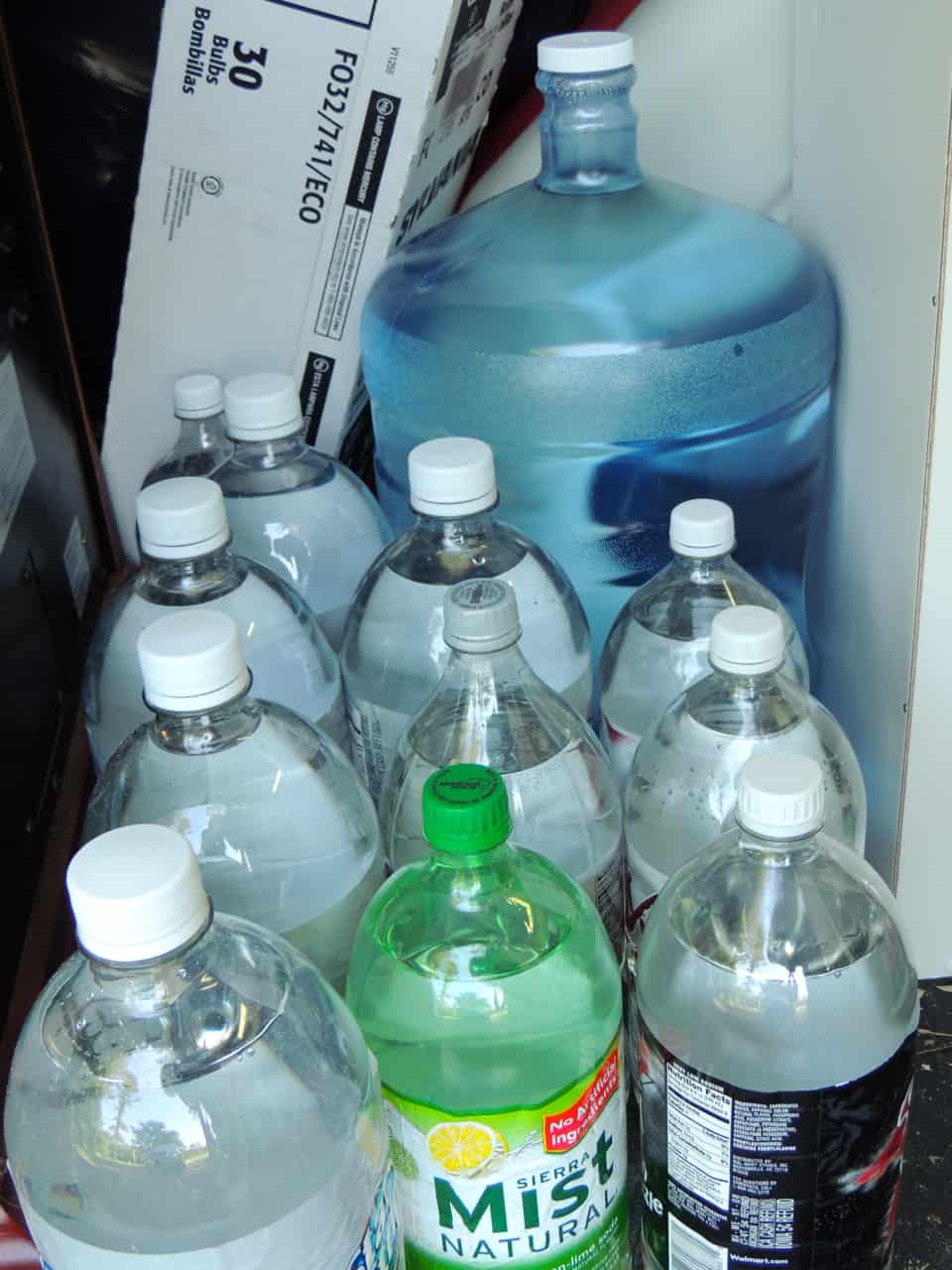
Water
This is a very important factor. We take for granted that our faucet will provide all we need but what happens if a natural disaster or other incident leaves that water cut off or undrinkable?
Back around the time I wrote this post, someone broke into a water treatment plant in Georgia intent on causing harm. While the EPA investigated, water was shut off to the entire town for four days with very little warning. Stories like this have become common lately. Ohio, Michigan, and many other places have had water shut off due to contamination and other incidents. Most likely, everyone in those towns thought it would never happen to them, either.
The one thing most books seem to suggest is one gallon per person per day and I really encourage this one. However, I have found that gallon jugs of water aren’t the best for long term storage. They tend to leak and evaporate over time. Also, containers that once contained milk or juice aren’t fit for waters storage due to bacterial residue issues. You can use these to store “gray water”, which is water used to flush toilets and such, but not for human consumption. If you use them for this, be sure you clearly label them as such.
Instead, I save 2 and 3 liter coke (you may call it “soda”) bottles for this. I rinse out the bottles with hot water and then sanitize them by filling halfway with water, adding a teaspoon of bleach, putting the lid on it, giving it a good shake, then rinsing again. By using two liters, it is easy to slowly build up your water supply. When I fill them with water, I add a few drops of plain bleach to make it safer for long term storage (I suggest checking out FEMA or LDS guidelines for how much to add – more on LDS later in this post). I come by two liters easily because I switched from canned drinks to those, but if you don’t drink cokes you can just ask someone who does or purchase all of the two liters for a party in exchange for taking the bottles back when they are empty (I’ve done this a few times).
You’ll also notice that the two liter bottles are far more durable than the jugs that water come in and make much better long term storage units. My favorites of all time are three liter coke bottles from the Dollar Tree. I sometimes buy them, pour the coke down the drain (it tastes awful but helps unclog drains!) and then wash out the bottle to use for storage. The neck is larger than that of a two liter so once they are dry you can easily use them for water, rice, or even dried beans. They are an especially well made plastic that is BPA free. For $1 you end up with a mighty fine dried food or water storage container.
Please note: Water doesn’t go bad but it can begin to taste stale after a while. Personally, if I need water and it tastes stale, that is not going to be a deal breaker for me. However, for some people it may be. To help restore the flavor, pour water that has been stored back and forth between two containers several times before drinking to help oxygenate it. Another option is, once a year, to water your garden with all of your stored water and refill the bottles with fresh.
Where to store it? I find a great place for storage is behind my couch in the living room – between it and the wall, under beds, or in the garage. Look for other underused areas in your home – the bottom of guest room closets, the bottom of your pantry, etc.
For the big dogs –You can purchase a 55 gallon water barrel to store, filled, in your garage. Many of these come with water pumps as well to make getting it out easier. For most folks who are just looking to prepare for a short term emergency, this will be too costly to consider. Note though that a 55 gallon water barrel is still just shy of two weeks worth of water for a family of four. There are bottles of water treatment you can buy on Amazon to add into these barrels to ensure the water is safe to drink for up to five years.
A lot of folks have the idea that should a water shortage or tainting even occur they will just fill up their bathtubs and have plenty of water. That is a good plan, provided the water is not already tainted or shut off. In other words, that isn’t really a backup plan.
You will need water to : cook, bathe, brush teeth, DRINK (don’t forget tea and coffee), and generally to live.
Important to remember: You will need at least one gallon per day per person, that’s mainly for drinking. Allow more for bathing, cooking, and flushing toilets. And remember, water doesn’t go bad. It may taste stale after a time but it is good indefinitely unless it becomes tainted.
Food
Food is a primary concern and countless companies exist whose sole business is to sell shelf stable items for disaster preparedness. Most books will give you a list to go down but I’ve found those to be highly tailored – to someone else’s family. For example: If your family doesn’t eat broccoli, 5 gallons of freeze dried broccoli is a waste of money and space no matter how good of a deal it is. This is a time of disaster, not a time to try to encourage culinary experimentation and fortitude.
My best advice is stick to what you know and start close to home.
Save your money and go to the grocery store first – There are SO MANY great options at your grocery store so don’t overlook your children’s favorites.
- Dried rice meals
- Ramen noodles
- Macaroni and cheese (pick up some canned evaporated milk and omit butter in a pinch)
- Chicken Noodle Soup
- Canned chili, etc.
- Peanut butter
I know these may not be appealing to all of us and you likely don’t want a diet comprised entirely of them but in a time of emergency, familiar and easy are important and for many families, these just might fit the bill.
The drawback of these grocery items is that you do need to rotate them on a regular basis in order to avoid something going past it’s expiration date, but if you buy things your kids enjoy eating and put them in a special place and replace every six months to a year you’ll be fine. Also determine ahead of time what your view is on expiration dates. This is a personal decision but I generally double all expiration dates in my head on canned goods and dried goods perhaps even longer, depending on my best judgement. You will need to rely on your own judgement here.
These are food items recommended for short term preparation – if you are preparing for a few days up to a month. If, after investigating the possibilities and expanding your knowledge of disaster preparedness, you decide to plan for long term, you will want to look into foods with an even longer shelf life.
Oil lamps are handy to keep on hand in case of power outage. Be sure you get oil that is labeled for indoor use. Drain and clean them once power is restored.
PSA: Fire is hot and it burns things. 🙂
Lights
After the tornadoes, we adopted farmer’s hours, rising with the sun and going to bed when the sun went down. This saved us from having to worry too much with lighting the house after dark. However you’ll want some options for this.
*Short term – flashlights work well so get a few and make sure you stock batteries.
*Long term – I prefer a few oil lanterns and some tea light lanterns for the kids. Young children will be disconcerted by the lack of power, quietness of the house, and extreme darkness of their room which they are probably not used to (most of us have at least one electronic device giving off a small amount of light in our bedroom). I have a few camping lanterns which operate on tea lights and are designed so that the tea light goes out if the lantern is dropped or turned over. A tea light generally burns 8-10 hours and they are very inexpensive. Pick up a few tea light lanterns and some candles and your children will have a better peace of mind in the midst of an emergency.
*When it comes to oil lanterns, don’t forget to stock up on oil and wicks. This is a link to a wonderful cold blast oil lantern made by Dietz that I love. I have two right now but plan on getting more. They are beautiful, too, so I just use them as decoration in my kitchen.
I’m sure you may have other options and I encourage you to do whatever works best for you and yours.
Battery Operated Radio
After the tornadoes, even with the power out, we were still able to use our telephones to access the internet, read the news, etc. We charged them in our cars but a lot of people no longer had cars (the tornadoes either destroyed or toted them off) so it is best not to count on a cell phone being usable after the initial battery runs down. A battery operated radio could save your life in the event of a string of tornadoes and can also help you to keep updated on how the emergency is being handled and what to expect. Again, a battery operated radio is nothing without batteries. This is another great option that I have: A solar radio that can be charged multiple ways, has a built in flashlight, and can even charge your cell phone once it is charged.
Heat
Most folks reading this probably have gas heat, a fireplace, or a wood burning stove of some sort. We do not. Fortunately, we also don’t have really cold winters, either. Still, a contingency plan has to be in place for us to be able to comfortably stay in our home during a power outage should the temperatures drop. I have a Big Buddy propane heater that runs on those small bottles of propane that you can get in the camping department. I buy them during season changeovers when I can find them on clearance. Just last week I paid $2.50 a bottle for bottles that are normally $6.00. This heater has a safety off switch, oxygen monitor, and can run for an entire night on one bottle of propane. It won’t get the entire house toasty by any means, but can make one room (400 sq ft) a whole lot more comfortable for the four of us. Combine that with a few of my Dietz lanterns, which also give off heat out of top vents, and we can ride out a lot of weather.
Medicine
You should have any prescription medicines and over the counter medicines that you commonly use on hand. If you’d like an additional month’s worth of prescription meds to have on hand, ask your doctor. The last thing you want to happen is to be iced in or sheltering in place due to an emergency and have a loved one run out of medication that is absolutely necessary for their health.
I like to keep a supply of cold remedies, cough medicines, and medicines for ailments common to my family as well. If you decide to look deeper into this you will find that it is also possible to have antibiotics on hand for different illnesses should the need arise. I could write a book about all of the items needed to be truly medically prepared for any disaster, but someone far more qualified than me has already done that.
Half A Tank Is The New Empty
My mother says this is the most important thing I have ever taught her! During the tornado aftermath, it was difficult to get gas. Most of our stations were closed due to lack of power to run their pumps and registers and the one or two gas stations that were able to open had lines so long that folks were urging people not to go get gas because you’d use more gas waiting in line than they could allow you to get at the pump. This made evacuation impossible for many people.
For this reason, I never let my car get below half a tank.
With half a tank of gas you’d most likely be able to:
- Get your kids if they’re at school or a friends house,
- Pick up your spouse or other nearby family members if need be
- Get away from the disaster area to where gas might be more readily available in order to evacuate for longer distances
Special consideration for kids
Most of the time, it is hoped that adults will handle these situations better than kids will. Therefore, children require special consideration when it comes to preparing for disasters. A simple box with candy, board games, a deck of cards, and one of those lanterns I mentioned earlier can make a world of difference. With Halloween coming up, consider shopping the clearance aisles once November has hit to add a bit of candy to this stockpile as well.
Often overlooked items
Cast iron cookware – In the event of a power outage, cooking with fire is almost always an option. Whether you have a grill or need to dig a hole and set up a firepit, you’ll need something to cook in. While it is perfectly fine to use most of the cookware you have in your cabinet, a lot of it will be ruined after cooking on the grill or fire so I like to have cast iron cookware on hand. This cookware can easily withstand cooking on the grill or over a fire. I have an all cast iron dutch oven (not enamel coated), and a few other pieces. Of course there is my heavy skillet, too! A Dutch oven alone can be used to bake bread, make stews, heat canned goods, brown meat, etc
Percolator and Coffee – This is something that may not apply to y’all but definitely applies to us! I did not have a perculator during the tornado aftermath so I used a cast iron pot to heat water with coffee grounds in it and had cowboy coffee each morning. Get coffee grounds in your mouth? Just chew! 🙂 Now I have a perculator but we don’t always have coffee grounds on hand (we use a keurig) so I’ve opted to add instant coffee to my supplies. It is freeze dried already, just ready and waiting for long term storage! Now, I’d definitely rather have brewed coffee than instant but we do what we gotta do and instant beats nothing. Some folks put back green (unroasted) coffee beans for a situation like this but when I’m in a hard place in life, the last thing I want to do is set up roasting my own coffee. A French Press is another option that I have now. I even added a hand crank grinder and a small assortment of beans, just in case.
Matches – This seems like a no brainer but is often overlooked. A package of six small match boxes cost a dollar at the grocery store near my house but would be worth more than gold bullion should they ever be needed. Spend five bucks and stock up.
Manual Can Opener – This is so very important and from what I’ve seen, the #1 most overlooked item to have on hand. If you have an electric can opener you likely don’t think about having a manual on handy. I can’t tell you how many times folks have been stuck with all sorts of wonderful canned goods and had to get really creative in opening them. This one opens regular cans and the sometimes more stubborn #10 cans.
As I said, this is NOT a list meant to be all inclusive. This is a list meant to get you thinking and inspire you to do further research and thinking about how to best prepare your home and your family.
Things not to do
*Do not plan on someone else preparing for you – I have a friend who told me the other day that if a disaster struck, they were coming straight to my house! I told them they’d be welcome the first two or three days while I emptied out and used up the freezer, but after that we’d send them on their way.
Not to be inhospitable, but if I work and prepare to take care of my family, I can’t work and prepare to take care someone else’s, too. This all goes back to rule #1: Be Your Own Hero.
It is easy to see that someone who is prepared to take care of their family of four for a full month will be lucky to last a week if friends and neighbors show up. We want to be neighborly, but if I’m prepared for my family to last a month with any help, I can easily stretch that out to two months if need be. If additional people are planning on me supporting them with the rescources I’ve put away for four people, I could be depleted in a week.
For a greater understanding of how this works, see my Little Red Hen storytime video. No, I’m not kidding.
***So if your big plan is Big Daddy On A Horse (someone riding in and saving your rear), don’t expect any of your friends and family to suddenly become Equestrians.***
Sit back and wait on Big Daddy. He’ll get to you…eventually.
*Do not plan on the calvary (ie. Big Daddy) showing up at the first sign of distress – The number one thing I do not expect is for an alert to be sent out across the nation just for me. I realize that if disaster strikes or an emergency happens, my family will be one of many affected. As one of many, the response begins with me. See Rule #1.
There will be others, you may not be the worse off (no matter how bad it is) and reaction time will be slow.
The most important thing to know in preparing for an emergency is this :
If you are not prepared with food, water, and supplies for your family for a week or more, then you need to be prepared for your family to go without food, water, and supplies for a week or more.
In other words: Those who fail to prepare need to be prepared to fail.
*Do not overlook things that will give you peace of mind, even if they seem irrational. Peace of mind in a storm is a precious thing – For me, this means camping lanterns and an abundance of candles so my kids don’t have to go to sleep in a dark room. It means dried beans and canned comfort food and a weather radio. It also means a car that never has below half a tank of gas.
Suggested Resources:
I also like having a book like this handy: Storey’s Basic Country Skills: A Practical Guide to Self-Reliance which teaches you everything from pretty much how to build a house to hunting and preparing wild rabbit. I know this is a bit of a stretch for folks only interested in short term preparedness but it’s an interesting book regardless and well worth the money.
The LDS Church – the Mormons are encouraged by their church to be prepared for emergencies and they have wonderful resources which they make available to the public. They’ve done all sorts of research on how best to store food items, what is needed for a family to be prepared, and more. Most, if not all, of this is available online.
Whenever I have a question about how best to store an item or whether or not a certain item is a good idea for long term storage, I immediately look to see if the LDS church has a suggestion on the matter. They are the experts here, and you’ll find that they’re very generous with their knowledge.
Prepper Blogs – I could spend all day reading prepper blogs and forums. The offer such a wealth of information. Google around until you find a blogger or website that seems to speak to you and see what they have to offer.
Again, it is up to you to decide how long you want to prepare for. FEMA recommends that everyone be prepared for at least three days. In my opinion and from the disasters I’ve seen lately and what is coming down the pipe, three days isn’t even a drop in the bucket, but it is a good starting goal. I suggest starting with a week, then moving to a month, etc. How much longer you prepare for beyond that is a decision you’ll need to research and make based on your own needs and beliefs.
Other things to consider:
- Water Filtration (for single person, we each have one of these. For family use, we have a Berkey)
- Sanitizing Agents (bleach, pool shock, antibacterial gel, lysol, etc.). Pool shock is much better than bleach because bleach loses it’s effectiveness after a few months but pool shock can be mixed up to make bleach and keeps indefinitely. I have the link to my instructions on how to do this on this post.
- N-95 masks as recommended by the CDC (these are the ones I like best, they have a respirator and are cheaper than any other of this quality level that I have found)
- and more. It is up to you to research enough to make informed decisions on what is best for you and your family. a
I’m Overwhelmed! Where Do I Begin?
In case you’ve read this and are feeling a little overwhelmed, here is a quick $10 Preparedness Plan that you can enact today:
Bag Meals
Bag Meals are shelf stable meals that you can assemble ahead of time in individual bags. Whenever you need a quick supper or a meal you can prepare without the aid of refrigerated foods and items that spoil quickly, reach for a bag meal. You can easily make a month’s worth of bag meal suppers and store them in a plastic storage bin until the need arises.
Read my introduction to bag meals by clicking here.
Here are some bag meal recipes on SouthernPlate, complete with printable instructions to include in each bag:
- Chicken and Wild Rice Casserole ~Bags to Dishes~
- Taco Soup ~Bags to Dishes~
- Chicken Enchilada Pie ~Bags to Dishes~
- Ma’s Chicken and Rice Bake ~Bags to Dishes~
- The original Bags To Dishes post has instructions on turning your family’s favorite meals into Shelf Stable Bag Meals as well.
Longer Term ideas just to get you started (I could write a book on my long term food ideas!):
- Bulk Rice (50 pounds from Sam’s is currently around $17) – White rice is good indefinitely if stored in an airtight container at constant temp
- Peanut Butter – high protein, easy on the stomach
- Honey – good indefinitely with proper storage
- Sugar – good indefinitely with proper storage
- Dried Beans – Easily keeps up to ten years with proper storage
- Shelf Stable Milk – good for up to 2 years, perhaps beyond.
- Oats – I get 10 pounds for around $7 at Sam’s. This is one of my personal favorites to store because they are so versatile. Breakfast, dessert, cookies, cake, etc. Lots of options with oats.
- Dehydrated Beef (click here to learn how to make your own)
- Dehydrate your frozen veggies instead of freezing them (click here for instructions) to make them shelf stable
- Freeze Dried Foods – the cadillac of food storage.
~~~~~~~~~~~~~~~~~~~~~~~~
I hope this post will get you thinking about practical things you can do today to help prepare your family should the need arise. As I said, I have purposefully remained vague so that you will investigate, think it out, and start moving towards a plan for your family. I’ve read many books on preparedness and considered many scenarios when working towards my short term and long term plan. If you have a specific question you’d like to ask me, feel free to do so in the comments below and I’ll be as frank and helpful as I can. Please refrain from political talk. There isn’t much good on either side of the fence at this point anyway and arguing amongst ourselves wastes valuable time we can spend being helpful.
I want to reiterate once more that this post is only meant as an introduction to preparedness to help kick start your thinking. Because of that, I have kept this purposefully vague in some instances.
However, if you have a specific question please feel free to ask it in the comments and I will be happy to answer it as fully and frankly as I can.
~~~~~~~~~~~~~~~~~~~~~~
What is the worst that could happen?
You and your family could end up in severe distress after a disaster because simple preparedness steps were not taken.
What’s the best that could happen?
You’ve bought up some extra candles, food, and cooking utensils. So you light a few candles every now and then, eat some of your pantry stock, and use your new pot!
To listen to my podcast answering a lot of the questions asked on this post, please click here.
It wasn’t raining when Noah built the ark.
~Unknown
When disaster strikes, the time to prepare has passed.
~Steven Cyros

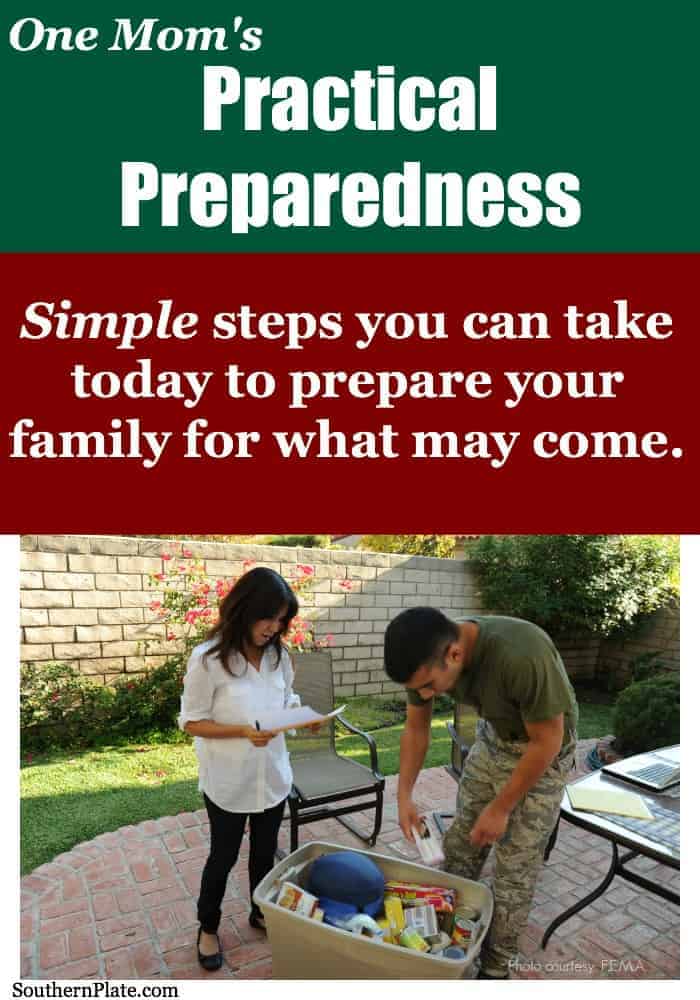
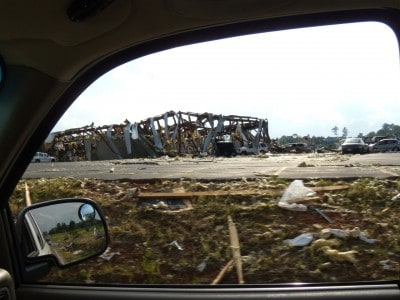
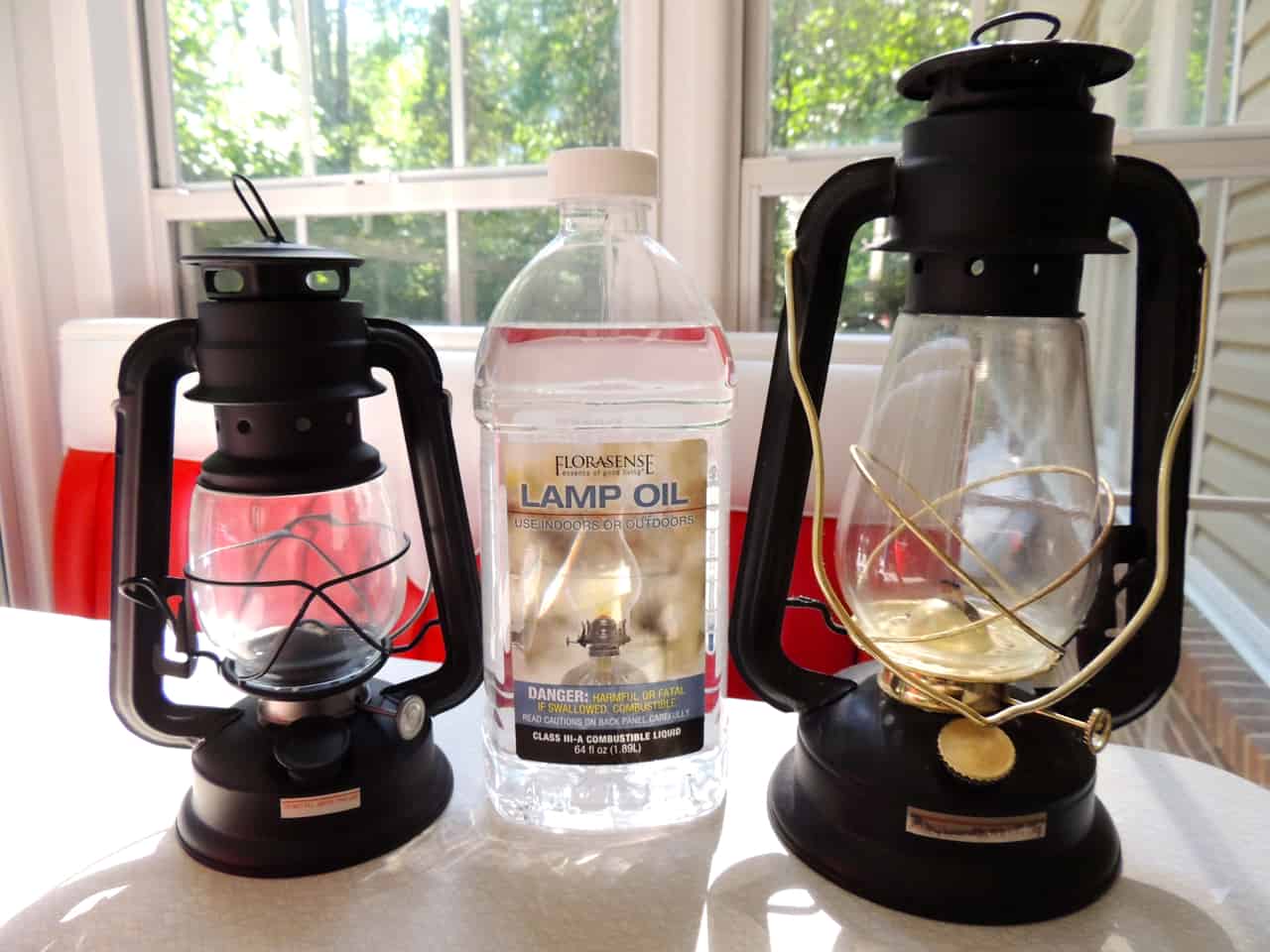
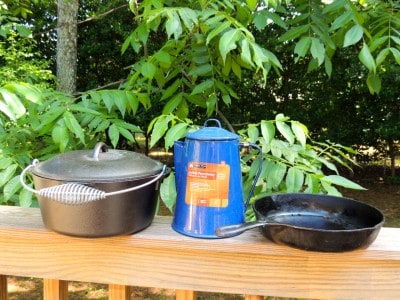
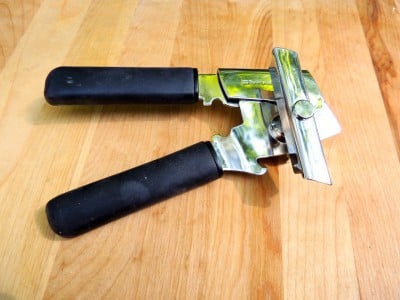






Thank you so much for covering this problem. I worked for the Red Cross for years teaching classes in CPR, first aid, and emergency preparedness. Most people think they always have time. But in an emergency situation time has run out already. You need to stop thinking about it and get busy preparing for it! I taught classes in preparing a 72 hour kit. But, sometimes that isn’t long enough either.
I have listened to you about dehydrating and now dehydrate all of my frozen vegetables. I am getting more racks and will start working on other items as well. I just got a big bag of apples that I’m slicing and preparing to dry. While I now live alone I do have family that don’t seem to think that they need to prepare ahead. They will most likely come here in an emergency. I WILL be prepared.
I have always kept a very complete first aid kit. And I check it often and buy replacements before they get very low. I have a lot of canned goods that I can rely on. And I don’t even have an electric can opener. I have one that cuts through the side so cans can be covered still with the lid and don’t have sharp edges. And I have more than one.
I always keep my oil lamps filled at all times. Sometimes we have had an outage that lasts several days. And I do live where it gets cold. I also have a lot of extra blankets.
I hope your posts have encouraged many others to act now. Thank you
Being prepared does not have to be an expensive venture. Many of the things I “put back” I get from Costco or on sale at my local stores. Wal-Mart sells water jugs that hold 7 gallons of water for less than $15.
I also recommend that people start a good first-aid kit. Think about what you will be exposed to: burns, cuts, scrapes, digestive issues (from a different diet), poison ivy, etc. You can buy a ready made kit and add to it, but I find it cheaper to make my own.
If you start as Christy said for a week and build from there it doesn’t have to be expensive. Make sure that whatever containers you store food and water in are food safe and BPA free. Invest in a vacuum sealer and you can store many items for a longer time than their original packaging.
I started getting things set aside for my family about 18 months ago. I evaluate every purchase now as to whether it will help me when the lights go out. Needless to say, my budget has really changed! Thanks Christy for bringing this to everyone’s mind. It never hurts to be prepared!
Christy,
This is WONDERFUL!!I have been thinking about this for a long time. Thank you so much for sharing your planning and research. I have pinned this, started a list, and have added several items to buy on my “later list” on amazon.
You are so wonderful, helpful, and caring!!
I like the 1/2 gas tank idea!!!
Thank you. God bless you and keep you and your precious family safe!!
Pam
Blessings to you Pam, I hope it helps you to get started!!
My family live in the northern parts of the Midwest. We get thunderstorms that that cause power outages and flooding. Then there are the tornados, some so bad they inspire movies, ie: “night of twisters”. And then there is blizzard season to deal with.
Thanks to my husband’s time in the military, we have our preparedness down. When he retired, his crew gave him a large toolbox filled with medical supplies and OTC meds. We have 5 large crates, the rubbermaid kind, filled with “camping supplies” like a tent, sleeping bags, cooking gear and food (mostly MREs, you can get at army surplus stores). We sometimes joke that it’s our zombie apocalypse crates. If we have to evacuate, all we have to do is toss the crates in the back of the SUV. We also have a crate stocked with pet supplies and a crate for the kids/baby. If we have to walk, they all fit on the appliance dolly we have.
And since we live in an area with very hard water (found that out after blowing through 3 coffee makes in 1 year), we have about 20 gallons of filtered water in the garage at any given time. And 3 tanks for the gas grill, if we get to stay home, we cook out.
Twice a year we go through the supplies, refilling and restocking as needed. We do it on the time changes, like your batteries in your smoke detector and the pressure on your fire extinguiser.
Excellent advice!! Thank you.
Great preparedness Anne!!! I love some of your idea, thank you for sharing!!! I especially like the going through supplies at time change, that will make it so much easier to remember!!
Christy,
This is Brother Mike (Nix) in Ashville, AL. I thank you for being on my prayer chain and devotion chain. Wonderful article about being prepared!
I feel I know you and your family, watching the kids grow up and watching God use you and your talent for writing and cooking to share the Gospel of Jesus.
I need to give you my input concerning being prepared. I have first hand experience.
I know hurricanes. Several affected my life over my 12 years on the coast, eventually losing our house to Hurricane Ivan. I know what being unprepared means. I learned the hard way, “baptism by fire” so to speak.
I grew up in the Birmingham area (Tarrant City) but moved to the coast in the summer of 1994, spending a year on Dauphin Island, then 5 years in Panama City Beach, and last 6 years in the Pensacola area.
One thing to point out for sure is some of the things you depend on to help you will not.
Cell Phones- the hurricanes took the cell towers as well as the telephone poles. Your fancy phone makes a nice napkin holder when the wind blows while you are having dinner under the stars because your house is gone.
Gas-plenty after the hurricane, but pumps run on electricity, so the gas was not available to anyone.
Shelter-maybe you were lucky enough to have part of your roof left. A tent or a tarp is essential.
Water-if not for the Churches distributing water, ice, and military meals (MRE’s) I am not sure what we would have done.
Food-once the freezer was empty and the pantry bare, the MRE meals actually looked much better!
Hygiene-camping 101 baby, that’s the ticket. The pool became a giant bathtub, but only for a while. Then it was nasty also. Toilets were holes in the yard, unless you had water in a bucket to pour into the toilet to make it flush. Hot water? (see “pool”).
Banks-if they survived they were not open. Everything depended on power. So your money in the bank meant nothing to the guy at the convenience store who had 4 cans of green beans he was selling for $5.00 a can. Man, I wanted those beans!
Injuries-praise God we were ok. Many of our friends were not so lucky.
For 2 weeks we were without power and could not get enough gas to leave the area. There was no gas within 100 miles of Pensacola. It was like living in a third world country. At night, there was nothing but darkness, no cars, no noise, nothing but uncertainty. How can this be? This is the United States of America. Where is FEMA?
That is a paragraph all by itself.
Once the power came back on we decided to try and make Birmingham (312 miles). I knew a 5 gallon gas can would take me 80-100 miles. If I could make Montgomery, I could make Birmingham.
After saving up 10 gallons of extra gas (2 cans) and having about ¼ a tank of gas in my truck we started out. Dead cell phones, 2 dogs, and $1.32 in change in my pocket!
We made it to Greenville and filled up the truck saving the last 5 gallons in the gas cans for a reserve. We learned our debit card worked. Finally, we reached the safety of family in Birmingham.
Once we went back, I was hired to be a Loan Officer for the Small Business Administration-Disaster Assistance Team (how fancy!) helping individuals and businesses obtain federal loans to start their lives over again. My work area was also in the same empty grocery store building as FEMA. I told someone later that if the rest of our government was as messed up as the SBA and FEMA we were in trouble. That was the fall of 2004. Guess what, we are in trouble.
I listened to people from 7 am to 9 pm, 7 days a week tell me about their loss of property, possessions, finances, and in some cases, loss of life. It was life changing for me. The suffering I saw can’t be described in words.
While we were trying to help the people of the area from Hurricane Ivan we had many more storms in 2005 along with the arrival of Hurricane Katrina. The losses from Hurricane Ivan I heard during SBA interviews in the previous months became child’s play compared to what I would hear about Katrina.
I had a lady call my phone and said she was with the Mt. Zion Baptist Church in Molino, a little town just north of Pensacola. She told me they had several pickup trucks full of supplies but did not know where to go to help. She heard the Mississippi gulf coast had been hit very hard. I told her to bring the supplies to 33 Brent Lane in Pensacola (our location). We had over 300 families living in their cars in our parking lot. FEMA? Sure, they helped, just like the Red Cross, but everyone was overwhelmed.
Churches had families living in Sunday school room. Padded pews in the sanctuary became beds. Kitchens in the church became soup kitchens. Our area churches, our people, did more to help than our government. And this was one storm.
When you have a family sitting in front of you with children and the mother hugs your neck, and begins to cry as she says “thank you” for the peanut butter and jelly sandwiches in the sack lunches, you are humbled beyond the very meaning of the word.
I am thankful God placed me where I could understand what thankfulness really meant. Yes, possessions can be replaced. Our families cannot.
Now that I am past my crying spell (always happens when I think of those times) I need to share what I think is important for my family in the coming end times.
Cash-no good. Buy gold or silver bars (only). I buy silver bars because I can’t afford gold. I believe silver will be a better choice. DO NOT BUY coins. The coins are worthless in hard times. Buy bars and store them in different places, never in a bank.
Food-freeze dried meals requiring only hot water to prepare are the best. You might want to team up with someone like Patriot Supply ( or Thrive). Good food. I will also be checking out your Thrive Life food source and may even join!
Water- there are a number of ways to make water safe if you have lake water, etc. I have purification powder (similar to swimming pool shock) that will purify water safely and is inexpensive. You can also boil, add a drop of bleach, use water filtration, etc. but my method is the right one for me.
Stove- now that we have covered food and water. A rocket stove (see YouTube) is the best choice. It uses small twigs instead of logs, it produces no smoke (very important), and is simple to use. You do not want to alert others that you have food by having smoke coming from your stove. The have and the have-nots; they will come for your food if they have none.
Solar- a simple 100 watt solar panel and controller, hooked to a small battery bank and an a/c converter will give you lights, a radio, and a way to charge your laptop, etc. Don’t look for hot water or air conditioning; it will only handle the basics.
Protection- this is paramount. Have a rifle, shotgun, and/or pistol. When I was a kid my heroes carried guns to rid the world of the bad guys. I have guns today to protect those which I love. Regardless of what the media wants you to believe about guns, in these uncertain times you will need to protect your family and also learn to hunt for game. Back to the food. If a guy knows you have a way to protect your family, he is less likely to try and steal what you have.
Faith-make sure you have a Bible, a real Bible with pages, and pray. Pray for God to give you faith each day to remember He is in control and still on the throne.
Misc.- matches, lighters, clips, poly bags, coffee, and toilet paper are just a few of the items overlooked by preppers . Yes, the can opener is the #1 item people forget.
I’m done. It doesn’t take a lot to start adding a little each month or so until you get what you need for your family to survive.
Remember, God is still in control and still on the Throne. He honors prayers…
Amen!! Wonderful!!!
Brother Mike, thank you so much for sharing your heart, your experiences and your wisdom with us!!!
Michael, thank you for sharing this interesting and informative story. You and so many others here are so right. In todays world with so much going on and so much bad possibly coming, (Think EMP) a survival mentality is a necessity. The majority of America (and else where) have no idea of the possibilities in our future. and the majority are not prepared. Natural or man made emergencies as many have seen or read about must be taken seriously. And from what Ive read over the years if it is man made there is a possibility as much as 90% will die in the first year. So being close to God is essential. Being ready for anything is a must.
Oh Ya I forgot, like he says If it is really bad you cant count on the federal government. They will be over whelmed and are not prepared. Local community and helping each other will be the answer to surviving. Be Prepared!
Thank you so much for posting this! I would absolutely love it if you did write a book on your long term food ideas! Thank you for giving me some great ideas, my husband would be over the moon if I could somehow manage to make your sweet and sour green beans from our Thrive storage… guess I should get to practicing huh? 😉
I refill all of my gallon vinegar jugs and gallon bleach containers with water and put the bottles in the garage – they are very sturdy, won’t leak and already have a touch of disinfectant to start with!